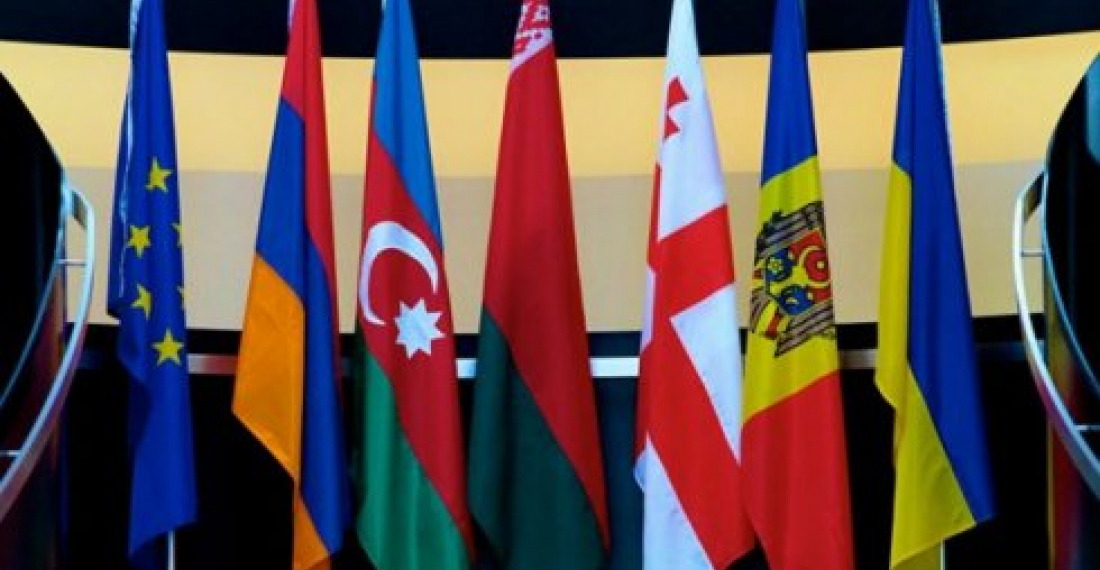Этот комментарий подготовлен редакционной командой еженедельного бюллетеня Caucasus Concise, публикуемый совместно с commonspace.eu
"Восточное Партнерство" является универсальным и эффективным инструментом, но должна быть продолжена работа по усовершенствованию его стратегии.
19 июня, в Люксембурге, состоялась VIII-я встреча на уровне министров стран Восточного Партнерства Европейского Союза (ВП). ВП объединяет 28 государств-членов ЕС с шестью партнерами по восточным границам Союза: Арменией, Азербайджаном, Беларусью, Грузией, Молдовой и Украиной.
Пусть и шесть партнеров разделают недавнюю общую историю, и также аналогичные проблемы, но каждый из них находится в своей точке их сложного перехода от СССР до новых реалий XXI века. У также выбраны разные траектории в том числе и в том, как они хотят структурировать свои отношения с ЕС. Первые попытки ВП, которые подразумевали универсальный подход ко всем партнерам явно не удались. Рижский саммит стал испытательным моментом для ВП, но с тех пор произошло многое. Более тонкий подход показывает все признаки успеха.
Трое из шести партнеров в настоящее время являются ассоциированными членами ЕС и частью рамок DCFTA. Соглашения, подписанные с Украиной, Грузией и Молдовой, имеют далеко идущие последствия и имеют огромный потенциал. Однако, им потребуется время, чтобы полностью переварить их и реализация не всегда будет легкой. Все три страны теперь также имеют безвизовые режимы в страны ЕС, что приветствуется и во многом все меняет.
Армения парафировала новое соглашение о всеобъемлющем сотрудничестве с ЕС. Оно может быть подписано уже в конце этого года. Сообщается, что Азербайджан начал переговоры по своему двустороннему соглашению. Беларуси предстоит проделать еще значительный путь, учитывая проблемные вопросы, связанные с гос. управлением, но в отношениях между ЕС и Беларусью происходит полная смена настроений, и перспективы сильного будущего сотрудничества в настоящее время считаются возможными и желательное развитие как в Минске, так и в Брюсселе.
В Люксембурге на этой неделе обсуждалась новая двадцати-очковая концепция результатов ВП, которую широко приветствовали. 20 результатов представлены в четырех ключевых областях: государственное управление; экономическое развитие; мобильность и сближение между людьми; связь, энергоэффективность и другие вопросы. Документ, написанный на брюссельском жаргоне, изданный Европейской комиссией, должен быть "переведен" на язык, который люди смогут понять, чтобы эти результаты могли стать маяками для миллионов людей в регионе Восточного Партнерства, для которых Европейский Союз является лучшей надеждой на лучшее будущее.
Дифференциация должна оставаться ключевой особенностью ВП на ее пути развития, и Европейский Союз должен дать понять, что те, кто относиться с пренебрежением к ценностям ЕС не должны расчитывать на такой же уровень отношений как те, кто принимает эти ценности.
Кроме того, три страны, которые являются ассоциированными членами ЕС, явно находятся в другой точке развития отношений по сравнению с теми, кто этого не сделал. Должен быть найден некоторый видимый способ для того, чтобы отменить это в будущем, но не обязательно создавая разделения между ними и тремя другими. Тонкость не всегда работает в этой части мира, но в этом контексте стоит попробовать. Подготовка к следующему Восточному партнерству, запланированного на ноябрь в Брюсселе, сейчас идет всерьез. "Восточное Партнерство" является универсальным и эффективным инструментом, но должна быть продолжена работа по усовершенствованию его стратегии.
Этот комментарий подготовлен редакционной командой еженедельного бюллетеня Caucasus Concise, публикуемый совместно с commonspace.eu







